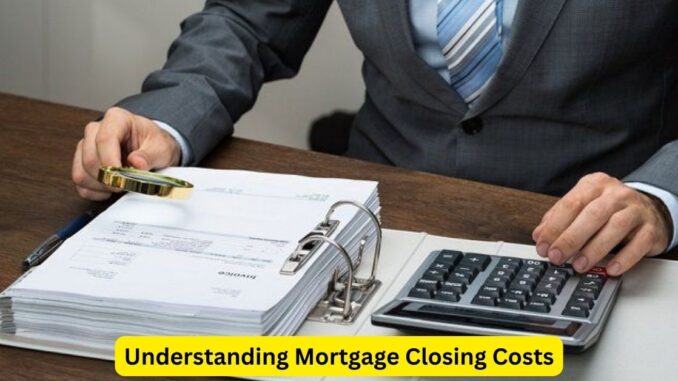
Closing costs are an integral part of the homebuying process, encompassing various fees and expenses associated with finalizing a mortgage. Understanding these costs is crucial for prospective homebuyers to plan their finances effectively. Here’s what to expect when it comes to mortgage closing costs:
1. What Are Closing Costs?
Closing costs are fees and charges incurred at the completion of a real estate transaction. They encompass a range of expenses, including lender fees, third-party services, and prepaid items related to the mortgage and the property purchase.
2. Typical Components of Closing Costs
- Loan Origination Fees: These are charges by the lender for processing the loan application and can vary based on the lender and loan type.
- Appraisal Fee: The cost for an appraisal to determine the property’s value.
- Title Insurance: Protects against any disputes over property ownership and title issues.
- Attorney Fees: Legal fees for reviewing and processing the necessary documents.
- Recording Fees: Charges for recording the new mortgage and property documents with the appropriate government agencies.
- Home Inspection Costs: Although not always part of closing costs, home inspections can be included in these expenses.
3. Prepaid Items
- Property Taxes: Buyers may need to pay a portion of property taxes upfront at closing.
- Homeowners Insurance: Typically, buyers pay the first year’s insurance premium at closing.
4. Anticipating Closing Costs
- Estimates and Disclosures: Lenders are required to provide a Loan Estimate (LE) within three days of receiving a loan application, outlining the estimated closing costs. Additionally, a Closing Disclosure (CD) is provided three days before the closing, detailing the final closing costs.
- Negotiation Opportunities: Some closing costs may be negotiable between the buyer and the seller. Discussing who will cover certain expenses can potentially reduce the financial burden on the buyer.
5. Factors Impacting Closing Costs
- Loan Amount: Closing costs are often a percentage of the loan amount but can also vary based on the purchase price and loan type.
- Location: Closing costs can differ by region due to variations in local taxes, government fees, and market practices.
6. Budgeting for Closing Costs
- Plan Ahead: Considering closing costs when budgeting for a home purchase is essential. On average, closing costs typically range from 2% to 5% of the home’s purchase price.
- Review Estimates: Review the Loan Estimate and Closing Disclosure provided by the lender to understand and prepare for the expected costs.
Understanding and anticipating closing costs empower homebuyers to plan their finances effectively. It’s crucial to factor these expenses into the overall homebuying budget to ensure a smooth and well-prepared closing process. Consulting with real estate professionals or lenders can offer additional insights into closing costs and assist in planning for this significant financial aspect of homeownership.
Leave a Reply